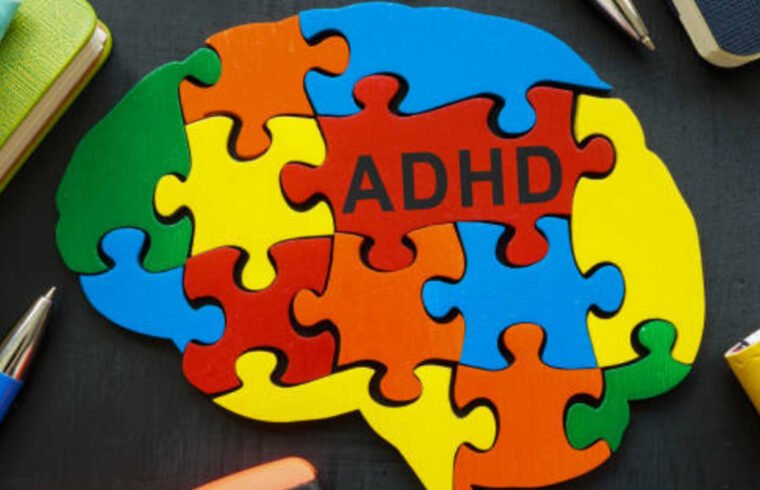ADHD, or Attention Deficit Hyperactivity Disorder, is a condition that affects both children and adults, leading to issues with focus, impulse control, and hyperactivity. People with ADHD may find it difficult to stay organized, follow through with tasks, and maintain concentration for extended periods. ADHD can significantly impact personal and professional lives, making treatment essential for improving the overall quality of life.ADHD treatment is tailored to address these challenges and can include a combination of medication, therapy, and lifestyle changes. The goal of treatment is to help individuals manage their symptoms, improve their attention span, and enhance their ability to function in daily activities. By seeking professional guidance, individuals with ADHD can learn to control their symptoms and live a balanced and fulfilling life.
Types of ADHD Treatment
Medication-Based Treatment Options
One of the most common treatment options for ADHD is medication. Stimulants, such as methylphenidate and amphetamines, are often prescribed to help improve focus and reduce hyperactive behaviors. These medications work by increasing the levels of certain neurotransmitters in the brain, which help regulate attention and impulsivity. Non-stimulant medications, such as atomoxetine and guanfacine, may also be prescribed for individuals who do not respond well to stimulants. Medications can be highly effective in managing ADHD symptoms, but they may not be suitable for everyone. It’s important to consult a healthcare provider to find the right medication and dosage that works best for the individual. Regular follow-ups are necessary to monitor the effectiveness of the medication and adjust the treatment plan as needed.
Behavioral Therapy and Counseling
In addition to medication, behavioral therapy plays a crucial role in treating ADHD. Cognitive Behavioral Therapy (CBT) is often used to help individuals identify and change negative thought patterns and behaviors associated with ADHD. Therapy can assist individuals in developing strategies to manage their impulses, improve organizational skills, and reduce procrastination. Counseling can also provide emotional support, helping individuals with ADHD address feelings of frustration, low self-esteem, or anxiety that often accompany the condition. Parents of children with ADHD can benefit from parent training programs, which teach effective strategies for managing their child’s behavior and creating a supportive home environment.
How to Choose the Right ADHD Treatment
Factors to Consider When Selecting Treatment
Choosing the right ADHD treatment depends on various factors, including the severity of symptoms, the individual’s age, and any coexisting mental health conditions. For example, children with ADHD may respond differently to treatments than adults, and the type of therapy or medication chosen may vary accordingly. The individual’s response to previous treatments and their personal preferences should also be taken into account. Some people may prefer non-medication approaches, while others may find medications to be more effective. It’s essential to work closely with a healthcare provider to explore different treatment options and find the best approach for managing symptoms.
Working with Healthcare Professionals for the Best Plan
To create an effective ADHD treatment plan, it’s important to collaborate with healthcare professionals such as psychiatrists, psychologists, or pediatricians. These specialists can assess the individual’s condition, recommend suitable treatments, and monitor progress over time. Healthcare providers can also offer guidance on any necessary lifestyle changes, such as improving sleep hygiene or incorporating exercise into daily routines. Regular check-ins with healthcare providers are vital for making adjustments to the treatment plan as needed. Open communication between the individual, their family, and healthcare professionals ensures that the treatment plan remains effective and that any concerns are addressed promptly.
Benefits of ADHD Treatment
Improving Concentration and Reducing Impulsivity
One of the primary benefits of ADHD treatment is improved concentration. Medications, therapy, and behavioral interventions can help individuals stay focused on tasks, whether at work, school, or home. As a result, individuals with ADHD may experience increased productivity, better academic performance, and more successful personal relationships. Another key benefit is the reduction of impulsive behaviors. By addressing impulsivity through medication and therapy, individuals are better able to think before acting, which can prevent accidents and social conflicts. Overall, effective ADHD treatment allows individuals to take more control over their actions and decisions.
Enhancing Overall Mental Well-being
ADHD treatment can also have a positive impact on mental health and emotional well-being. Many individuals with ADHD experience feelings of frustration, anxiety, and depression due to their difficulties in managing daily tasks. By effectively addressing ADHD symptoms, treatment can reduce these emotional challenges and improve self-esteem. Moreover, ADHD treatment helps individuals build a more structured and organized lifestyle, which leads to reduced stress and improved mental clarity. As individuals learn to manage their symptoms, they may experience an overall sense of balance and emotional stability.
Alternative Treatments for ADHD
Natural Remedies and Lifestyle Changes
Some individuals with ADHD may explore natural remedies and lifestyle changes as part of their treatment plan. While these methods may not work for everyone, they can complement traditional treatments. Strategies such as regular exercise, a balanced diet, and sufficient sleep can contribute to improved focus and mental health. Mindfulness practices, meditation, and yoga are other alternative approaches that have shown promise in helping individuals manage stress and improve attention. These practices can also reduce anxiety, a common co-occurring condition with ADHD.
Exploring Supplements and Other Non-Traditional Therapies
Certain supplements, such as omega-3 fatty acids, zinc, and magnesium, have been researched for their potential to improve ADHD symptoms. While the effectiveness of these supplements is still debated, some individuals find them helpful when used alongside other treatments. Other non-traditional therapies, such as neurofeedback and acupuncture, are gaining popularity as alternative options for managing ADHD. These treatments aim to promote brain regulation and enhance focus, although more research is needed to establish their long-term effectiveness.
Conclusion
ADHD treatment involves a multifaceted approach that includes medication, therapy, and lifestyle changes. By understanding the different treatment options available, individuals with ADHD can choose the best plan to manage their symptoms and improve their quality of life. Working closely with healthcare professionals ensures that treatment is tailored to the individual’s needs and preferences. Whether through traditional or alternative treatments, the goal is to help individuals with ADHD lead successful, fulfilling lives.


